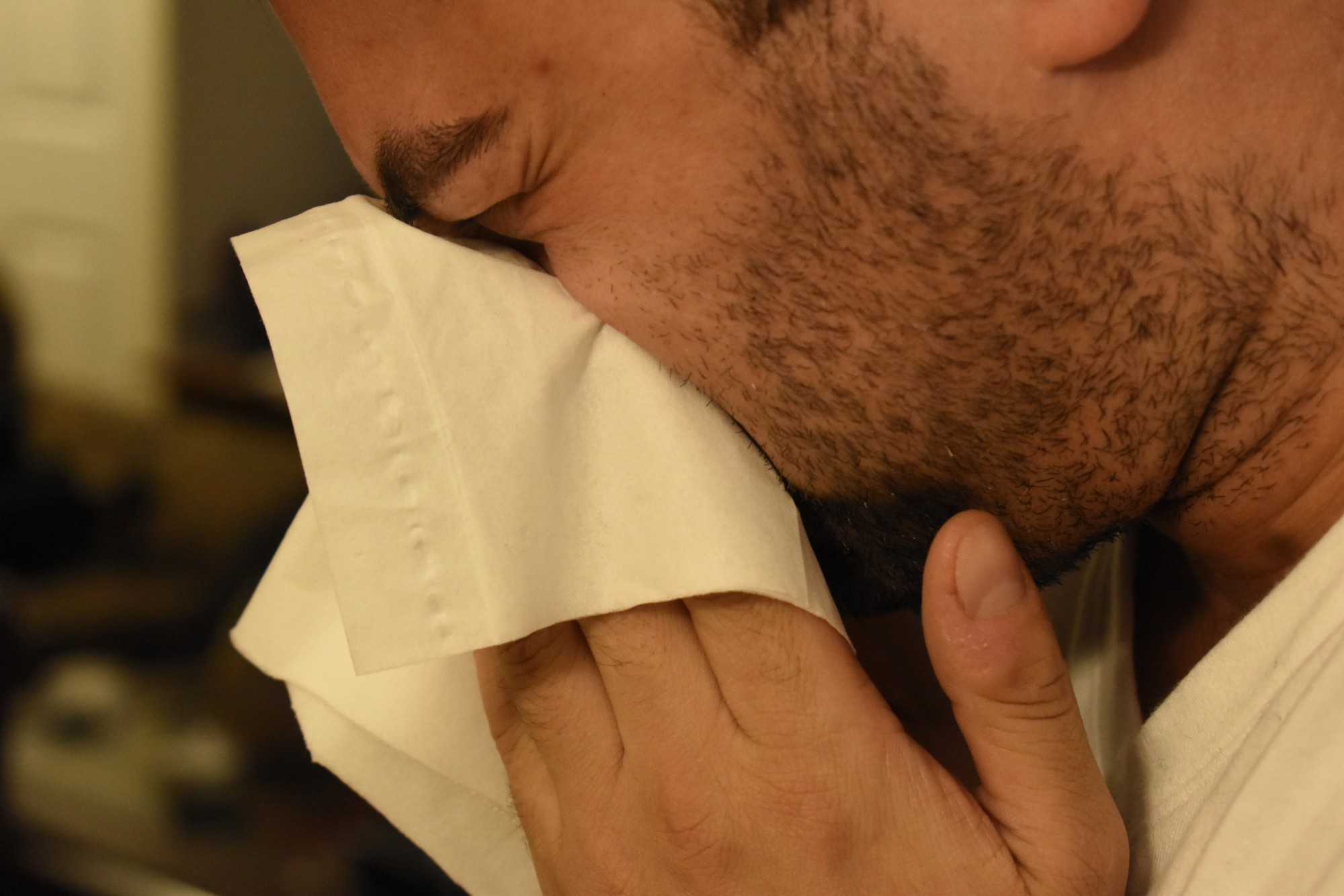Lack of ‘additional paid leave provisions’ creates worry for on-campus staff

For Wosam White, a nursing lab technologist who is on campus three days a week this semester, the risk of coming in contact with the COVID virus is higher for him than for staff and faculty who are working from their homes. But as a hands-on worker, White says it’s preferable to doing everything remotely.
“Most of the work I do a lot of the time requires me to be on campus so I’d rather be on site,” he explained. “I don’t mind doing all the emails and other background research from home, but I’d rather be on site.”
White has dedicated a total of 19 years to the college and has spent five in his current position with the nursing department.
His job entails providing technical support services to students and staff, servicing and repairing equipment in the classrooms and labs such as computerized mannequins, updating software on laptops and computers and maintaining an inventory of supplies for the nursing department.
“When I’m providing supplies and equipment to the different labs for the students’ use it does come in contact with a number of students even though those students are limited,” said White. “But afterwards, you know, who knows if the items were properly sanitized? They should be, I think they’re following those rules but you never know.”
If White had to self-isolate for any reason, however, he could use his vacation time. As he has worked at the college for so long, he has a lot of it stacked up. However, he knows other employees aren’t as fortunate.
Full-time college employees receive two weeks of paid sick leave per year. If they or someone they were in contact with became sick from COVID-19, or were recommended to self-isolate by Public Health for any reason, they’d have to do so for at least fourteen days.
But college employees won’t receive any extra paid leave in light of the pandemic, according to a statement made by Maureen Castella, manager of total compensation, to staff, faculty and students at a college town hall on Sept. 30, 2020.
“For those individuals who are eligible for paid sick leave, the college is allowing them to use this leave when they are required to quarantine or isolate at the direction of public health and they cannot work from home,” Castella said.
“Even though the individual is not sick, this leave may be used during the pandemic. For those individuals who do not have paid sick leave, the college has put in place a paid leave of up to two days to facilitate testing. Alternatively, should the individual not wish to use the paid options provided by the college, there are legislated leaves available through the government they could apply for. At this time, it is not the intention of the college to introduce additional paid leave provisions, but rather it is the intent to utilize what existing coverages are currently available.”
This announcement has seeded worries for some staff who say not all college employees are in the same boat.
“I feel lucky I haven’t used my sick leave yet, but if I had I’d be worried about the next emergency that happens and how I’d weather that,” said White. “I just wish that most employees had further protection from the college and they wouldn’t have to worry about anything to help their families.”
Mike Daniel is also a technologist employed with the nursing department. His duties are very similar to White’s, but rather than servicing technology and software his skills lie in the realm of practical emergency medical supplies such as needles, syringes and stethoscopes. He’s been working at the college for nine years, and he’s never taken a day off sick.
“Obviously, I’m at greater risk because I’m in closer proximity to students and some of the other teachers who are on campus,” Daniel said. “Yes, obviously those who are able to stay home are better protected than myself, but I don’t feel that I’ve been compromised. In my opinion it’s part of my job to be there, and to take my own safety precautions as well.”
Daniel says he’s not one to live in fear, but thinks the college should be obligated to compensate employees who got sick and traced the virus back to campus.
Basil Phillips, the program coordinator for Algonquin’s massage therapy program and head coach for the women’s soccer team works on campus two days a week. The hands-on nature of his program demanded his presence on campus rather than in a full-time remote capacity.
“I would say I feel pretty safe,” said Phillips. “Being a massage therapist myself, there’s protocols we’ve had to adhere to in order to return to practice, and the massage program is no different. There’s protocols we put in place to maintain the safety of our students.”
Most of the program is theory-based, but the massage lab and clinic portion is delivered on campus.
“I think if you have to be off for any length of time, it clearly is worrisome,” he said. “You never want to be off. You don’t want to be not working. I think now what I would have to look at would be what kind of government supports are there, and I know that there are a couple of things that they have put out to tap into with regards to having to be off.”








